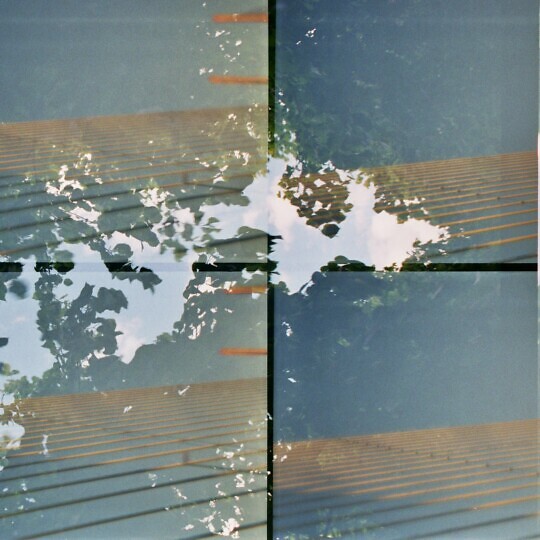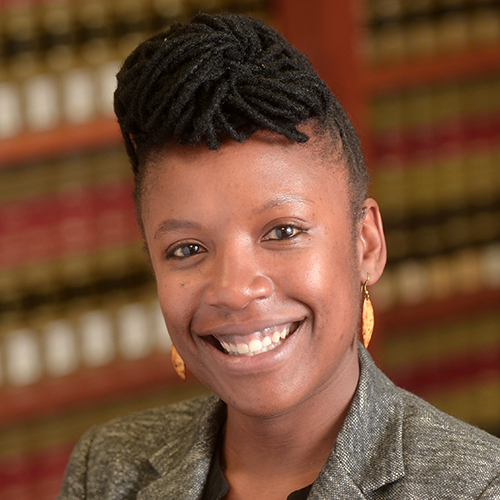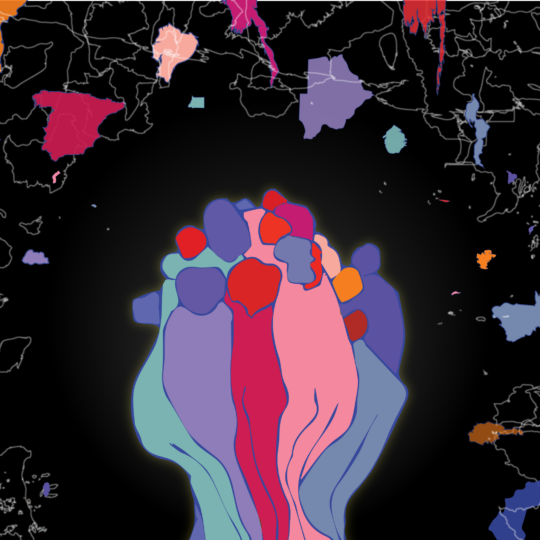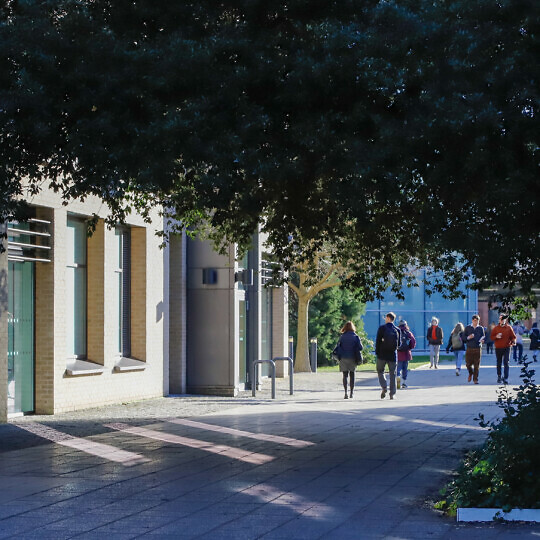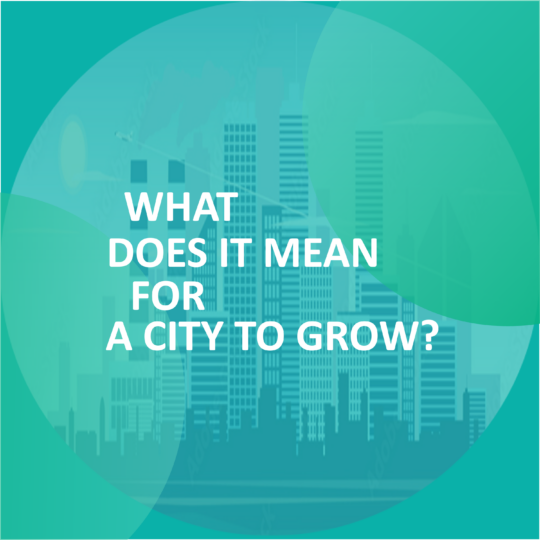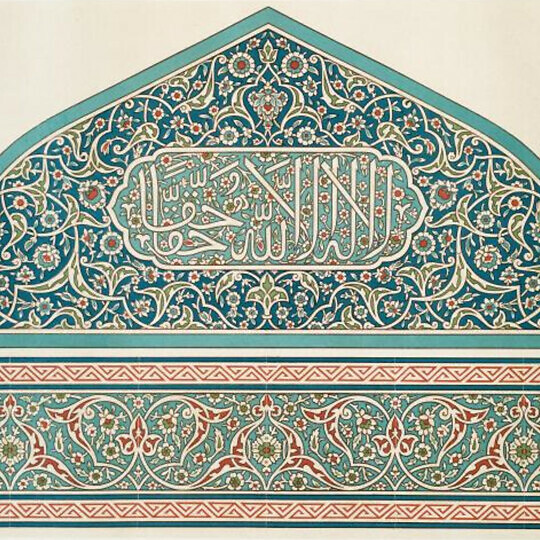| 4 Sep 2014 - 5 Sep 2014 | All day | CRASSH, Alison Richard Building, 7 West Road, Cambridge CB3 9DT - SG1&2 | |
- Description
- Programme
- Abstracts
Description
Register online via the link at the top right hand side of this page
Conference fee: £30 (full), £15 (students) – includes lunch, tea/coffee
Deadline: Tuesday 2 September 2014
Twitter Hashtag: #globalsacred
Conveners
Harald Wydra (University of Cambridge)
Irene Herrmann (University of Geneva)
Summary
The secular age has re-encountered the sacred. With the attacks of 9/11, 2001 at the latest, taken for granted secular understandings of the modern state and the relations between states have become problematic. The post-secular age has seen the revival of political theologies, the de-privatisation of religion, trends of de-secularisation, and the rise of religious fundamentalism, epitomised by terror in the mind of God. Whilst the sacred is associated with a morally authoritative, mysterious, and awe-inspiring power, sacred grounds in the global age increasingly are sites of collective violence, victimhood, and sacrifice. The global age breaks boundaries and establishes boundless communication. Such conditions of social fluidity are often considered to be propitious to the diffusion of equality, democracy, and human rights. Yet, a world dominated by networks and global inequality has also increased the sense of isolation, resentment, and conflict. When life-worlds are confronted with existential insecurity and identities are threatened, people require explanation, reassurance, and a sense of community. Quests for sacrality appear often in the guise of claims for collective self-transcendence and purity. People attempt to safeguard the collective identity of an inside group against an outside. The abject of tortured human beings or ethnic cleansing is thus the constitutive opposite of social healing or the politics of reconciliation. Claims about the morally good and the axis of evil, the ‘civilised’ and the ‘barbaric’ accompany discourses and activism in the name of humanitarianism.
The aim of this two-day conference is to engage with selected manifestations of the sacred in the contemporary world. The focus will be on victimhood and sacrifice. On the one hand, humanitarian politics has followed a bias towards protecting victims and saving strangers. The response of international law to the age of genocide has reshaped ideas of justice and morality. It has come to favour an image of humanity as a transcendent marker of globalised ethics. The Holocaust stands out as the supreme act of de-humanisation, which should inspire ethical and political action in the defence of innocent victims. Humanitarian politics holds life sacred by means of favouring the protection of victims. On the other hand, the sacred is inexorably linked to sacrifice. The ‘war on terrorism’ has abundantly illustrated the power of performance and mediatised images of suicide bombing, torture, or the sacrifice of innocent live abundantly. Disturbing acts of suicide bombing and martyrdom in the name of religious principles are shocking for publics in democratic states. Conversely, constitutional democracy re-enact sacrificial practices ranging from indiscriminate air warfare to torture in order to legitimately avert disaster and threats to their existence. Here, the fear of potential victimhood of their citizens can be constructed as an ethical imperative to justify acts of sacrifice.
The interpretive line of this conference is, therefore, not whether the sacred has ‘returned’ or always been there. Rather, it is to understand conditions of political fluidity that make quests for sacrality emerge. The binding power of sacred values or awe-inspiring truths must be linked to borderline experiences of genocide, world war, and terror. The rise of the sacred is, therefore, more a consequence of disenchantment, crisis, and anomy than of perennial ethical imperatives based on philosophical norms. The structure of this conference will be thematical: it will deal with a genealogy of humanitarian politics, with the changing political forms of the sacred, including secular political utopias, cults of remembrance, but also the rise of sacred violence in the name of religious fundamentalism, torture, and sectarian violence. Leading questions of this conference will be: What are the collective social conditions for the rise of new forms of the sacred? Can an age of transparency and intense communication tolerate sacrifice? Why have the religious and the political come to be so rigidly opposed to each other? Can the rights of humanity transcend political rights of citizens? Under what condition can the care for victims turn into a ‘cult of victims’, which would justify terror, violence, and sacrifice?
Sponsors

Supported by the Centre for Research in the Arts, Humanities and Social Sciences (CRASSH).
Accommodation for non-paper giving delegates
We are unable to arrange accommodation, however, the following websites may be of help.
Visit Cambridge
Cambridge Rooms
University of Cambridge accommodation webpage
NB. CRASSH is not able to help with the booking of accommodation.
Administrative assistance: events@crassh.cam.ac.uk
Programme
| Thursday 4 September | |
| 9.00-9.20 | Registration |
| 9.20-9.30 | Introduction |
| 9.30-11.15 | SESSION 1
|
| 11.15-11.30 | Coffee break |
| 11.30-13.15 | SESSION 2
|
| 13.15-14.15 | Lunch |
| 14.15-16.00 | SESSION 3
|
| 16.00-16.15 | Coffee break |
| 16.15-18.00 | SESSION 4
|
| Friday 5 September | |
| 9.00-10.45 | SESSION 5
|
| 10.45-11.00 | Coffee break |
| 11.00-11.50 | SESSION 6
|
| 11.50-13.00 | FINAL DISCUSSION |
| 13.00-14.00 | Lunch |
Abstracts
Elisabetta Brighi: 'On the globalisation of resentment: notes on fifth-wave terrorism'
The contemporary transformation from ‘fourth wave’, religious terrorism to ‘fifth wave’, lone-wolf terrorism can be read in terms of the convergence of a number of developments. A Girardian approach would identify the hyper-mimeticism that characterises the globalisation of late modernity, rather than much-trumpeted forms of religious violence, as an important driver of this transformation. The globalisation of resentment and the individualisation of violence are further enabling conditions. Finally, urbanization provides a less studied but important aspect of the matter. The paper will start from Fyodor Dostoevsky’s novels such as Notes from Underground, Demons, and The Brother Karamazov, to offer readings of XXI century lone-wolves – abject, outcast, spiteful yet modern and urban anti-heros boiling with rage, bitter with resentment and on the verge of radicalisation. A Girardian reading of the poetic truths contained in Dostoevsky’s work is able to provide important keys to explain some of the contemporary transformations of political violence.
François Foret: 'Sacred at home, sacred abroad: two divergent paths? How the European Union relates to religion in domestic and foreign politics'
The emergence and management of the sacred are characterized by “conditions of political fluidity”. Time, space, balance of powers, strategies are some variables likely to influence the branding of norms and values as sacred and, subsequently, their political modes of regulation. The European Union is a perfect laboratory to understand in a comparative perspective “what are the collective social conditions for the rise of new forms of the sacred”. As a multicultural and poly-centred polity, the EU has to reconcile 28 different national traditions to relate to religion. As a political space between the national and the global, it questions constantly its shifting internal and external boundaries. The purpose of this contribution is to study the changing patterns of definition and handling of the sacred by the EU through two case studies. The first one is the codification in 2013 of “Guidelines on the promotion and protection of freedom of religion or belief” by the institutionalizing European Service of External Action to articulate two competing absolutes, human rights and religion. The second is the influence of religion on the framing of the external image of the EU, either as a secularized and relativistic soft power or as a Christian club standing for a strong civilizational identity.
Roberto Farneti: 'On the Persistence of Sacrifice'
This paper tries to describe the persistence of sacrificial structures and practices in global politics. Contrary to the view that the sacred and sacrifice are remnants of pre-modern forms of political aggregation, this paper argues that sacrifice has not been eliminated once and for all; it still survives in our supposedly post-sacrificial societies under many disguises. Sacrifice is still at work for it provides precious support in resolving conflicts, despite the emphasis placed on democracy and rationality. To be sure, the effectiveness of sacrifice has been consistently concealed in order to credit different explanations for a number of success stories. The most significant one, consisting—in Steven Pinker’s words—“in the multiple declines in violence” in recent human history, credits the escalation of reason and democracy as the principal drive of a major trend towards the de-escalation of violence. This dominant narrative describes modernity in terms of escape from a pre-rational past in which people were driven by irrational violence, “figments of their imagination”, hierarchical arrangements, and a general urge for authority and domination. The story ends with the final formation of the functionally organized and nationally integrated nation-state and the eventual elimination of archaic structures of social aggregation such as ritual and sacrifice. Mimetic theory presents a rather more sophisticated picture of the ‘process of civilization,’ with the aim of challenging the very same ‘success story.’ Mimetic approaches have unveiled a number of unpleasant facts about persistent cultural characters. This paper seeks to integrate the discourse and perspective of political science with other insights, from other disciplines and discourses, by bringing the mimetic perspective to bear on current global dynamics.
Roger Griffin: 'The Terrorist Mission as the Sacralization of Anomic Time and Space'
This paper will explore the deep nexus between a collective or personal sense of ‘mission’ and the creation of a subjective sphere of sacrality and transcendence that overcomes or suspends feelings of anomie, futility and impotence. In extreme cases it can subjectively justify the breaking of human taboos against killing and willingly seeking death because murder and dying itself are ‘sacralized’ and imbued with higher moral and metaphysical meaning by the ‘holy cause’ in whose name they take place.
Having examined the revealing etymology of ‘mission’ , the paper first surveys some historical examples of the sacralization of a collective purpose through such concepts as doing things ‘for the sake of’ or ‘in the name of’ a divine cause or a religious edict. It then focuses on the modern era in which both religious and secular missions to destroy acquire the character of a moral and metaphysical imperative to which all other considerations must be subordinated. Case studies in this phenomenon are provided by the role of ultranationalism in the First World War and the sacralisation of Japanese imperialism and Bolshevism.
The central role of the sacred it the terrorist mind-set is then considered in the context of the terrorist’s identification with the defence or foundation ex nihilo of a particular nomos which is experienced as having absolute value and as realizable only through dedicated activism and targeted violence. The paper concludes by suggesting that in the age of deepening secularization and anomie compounded by objective socio-economic and political dilemmas, the temptation for a small minority of groups or individuals to seek existential refuge in sacralised temporalized utopias of a secular or religious kind will play an ever greater role in shaping historical events, giving rise to sporadic and largely unpredictable acts of violence.
Jodok Troy: 'Diplomatic Service of the Holy See in International Society'
“The Holy See is the world’s largest and oldest non-governmental organization. From the small city-state of the Vatican the Catholic Church administrates and distributes a distinct soft-power approach to achieve its aims around the world. For this she uses a traditional tool of statecraft: diplomacy. The diplomatic service of the Holy See is the oldest there is. Although most of its activities are related directly to ecclesial matters, its “ambassadors” (nuncios) participate in rather secular issues of international relations as well: from good-services in legal disputes to various mediations in war-torn countries. Not least also traditional clerical duties, i.e. the appointment of bishops, have serious influence on domestic and even international politics. The paper evaluates the structural framework of the Holy See’s Foreign Service and the ethos of its members. A socio-scientific focus on this institution, relying on a traditional tool of statecraft as well as working in the non-governmental sphere, promises new insights to international relations.”
Irene Herrmann: 'Playing with/on the sacred: the International Humanitarian Law'
Since the mid-nineteen Century, people have tried to humanize war. To this end, they have established a body of International Humanitarian Law that States have committed to respect. This law has progressively evolved, so that it protects not only the “historical victims” of wars, such as the wounded soldiers and the prisoners, but also the civilians who, admittedly, have become the main target of warriors. In this respect, IHL seems about to achieve its humanitarian goal and protect those who suffer from (human-caused) disasters. However, not only is their goal still far away, but most of the combatants only abide by the IHL imperfectly, if at all. Most commentators focus on this failure, and discuss its causes and possible remedies.
In this paper I shall argue that the gap between humanitarianism and the achievements of IHL must be seen as inescapable and deliberate. Humanitarianism represents, in itself, a goal that moves away as you approach it. It is an ever-developing sacred, which cannot be achieved, because it is impossible to protect all victims and because the very number of categories of victims are ever-increasing. Moreover, most social actors are aware of this dynamic and play on/with it. In other words, they contribute to humanitarianism's sacred character and even reinforce it by only (unwillingly) imperfectly achieving it. Beyond the specific case of International Humanitarian Law, I intend to question the apprehension of the sacred and to evaluate to what extent social actors not only construct their sacred values but manipulate them. At the end of the day, this analysis might give an insight into how and why the sacred evolves.
Harald Wydra: 'The Spell of Humanity'
This paper argues that quests for sacrality are creative forces in the formation of collective identities in the global age. Shifting the vantage point towards extraordinary politics of liminal globality, the first part captures borderline experiences where political reality is broken and markers of certainty dissolve. Rather than a fundamentalist remainder in a secular world or a foundational principle, the sacred is conceived a transitional and processual reality that performs a hinge function in balancing the fragility of political reality. The constitutive role of the sacred has, on the one hand, to acknowledge immanent processes of fractures of identity and transgression of boundaries. On the other hand, the sacred transcends the concerns of profane and ordinary politics. Taking the lead from mimetic theory, the second part proposes evidence from two powerful dynamics, which appear to have become new political theologies: The global spread of the democratic imagination and the politics of humanitarian reason. It will conclude with some reflections on the non-agentive but creative power of the political imagination of the sacred in today’s world.
Sara Silvestri: 'Exploring the concept of faith among Muslim women in Europe'
Based on extensive empirical research among Muslim women in 5 European countries, this paper seeks to draw out the conceptual significance of the respondents lived experiences of religion and personal narratives about the relevance of religious values and practices in their lives. I am especially interested in the daily negotiation of the relatively fixed normative component of Islamic doctrine, with the personal reinterpretation of the Quran as well as in relation to the daily pressures of life, family and work. A highly variegated picture emerges of the facets that Islam takes in contemporary European societies and politics that both defeats monolithic accounts of ‘Euro-Islam’ and of the ‘Shariatisation’ of Europe and simultaneously enables us to draw accounts with the challenges and experiences that other faith traditions are going through in Europe.
Antonio Cerella (University of Central Lancashire): 'Homo Sacer Revisited: Sacrality and Immanence in Global Politics'
A disturbing ‘common feature’ is emerging from the background of the complex and chaotic landscape of violence which characterizes the global age: human being’s bare life has taken the centre of the stage. Whether it is the indiscriminate violence of genocide, the unpredictability of suicide terrorism or the dangerous lack of distinctions of a civil war, biopolitics is more and more gaining a central role in global politics. However, it has been rightly pointed out (Agamben, 1995) that not only violence but also the means for its resolution have tended towards this drift. For if one can speak of “Human Security” it is just because one has already postulated that human life as such – “how people live and breathe in a society” – is today the ‘highest’ political good. In other words, the relationship between power and violence – in the era of globalization – increasingly reflects the original ambiguity of the sacred. But what lies behind the structure of sacratio, behind the bare life of homo sacer, who may be killed and yet not sacrificed? In this work, I aim to trace a genealogy of sacrifice in order to understand the origins of the contemporary biopolitical paradigm. Drawing on the work of Agamben, Girard, Schmitt and Heidegger, I will show how the biopolitical body is the product of a process of immanentization which, over time, ends up capturing human being’s life in a bare secular form.
Dr Joseph Webster: The Sacred Power of the Parade: Orange Domination, for a Moment or Two
“The Orange Order is the oldest and biggest Protestant Christian fraternity in Scotland. We are an organisation of people bonded together to promote the ideals of our faith”. So says Henry Dunbar, Grand Master of the Order. But how is it, exactly, that the Orange Order seeks to promote their ‘Protestant Christian’ faith? And with what effects? This paper takes as its ethnographic point of departure the ‘Orange Parade’ – a ritual ‘celebration’ and ‘demonstration’ of the victory of Protestantism over Catholicism in Britain since the ‘Glorious Revolution’ of 1688. Hundreds of such parades take place across Scotland’s Central Belt every year as a way of marking the various high points of the Protestant, unionist and loyalist calendars of Great Britain and Northern Ireland. This paper considers how attempts are made to revive the sacred history of British Protestant ascendency by bringing it into Scotland’s present via Orange parades. By examining the ‘embodied semiotics’ of these ritual processions – through sound, colour, heat, smell etc. – I consider what happens when aspirational ascendency becomes actual domination, as inscribed upon a cityscape, neighborhood, or parade route. Yet, what we learn from the Scottish context (and what differentiates it from that of Northern Ireland) is that the achievement of ‘Orange domination’ is always momentary, even fleeting. Here, the ‘distributed person’ is not only capable of a powerful agentive drift, but also remains subject to it limits. In Scotland, the Orangeman is king (and Edinburgh or Glasgow, Protestant) for only a moment or two. Moreover, with an independence referendum only months away, Scotland’s political present and near future – as located within the UK – can no longer be taken for granted. What happens when political events threaten the possibility of even a momentary imposition of Orange sacrality? Attending to these questions ethnographically locates the Order within a politically changing Scotland, while also locating (emic and etic) notions of the sacred within much wider political theologies and philosophies of victimhood, sacrifice, and sectarianism.




